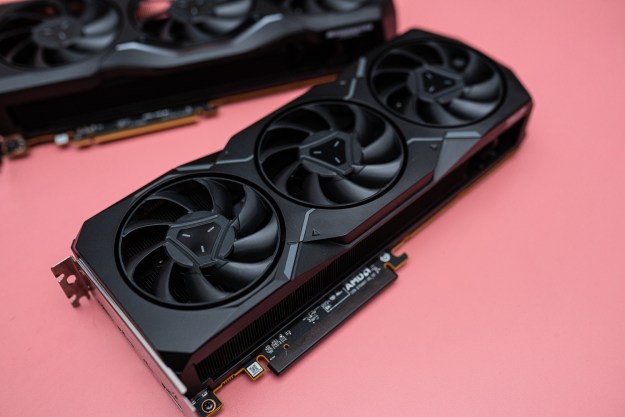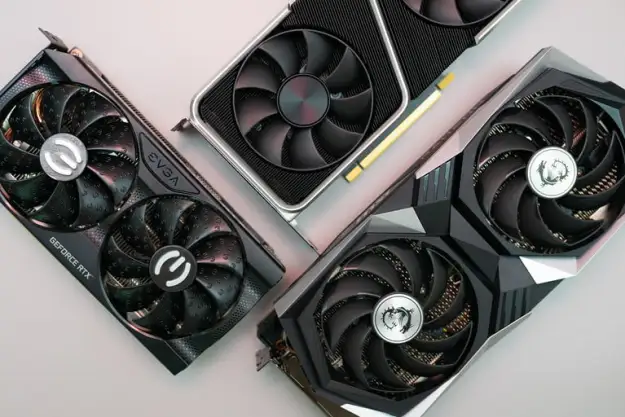Updated: We added pre-order information and confirmed the rumored pricing for the Radeon Vega Frontier Edition.
After what seemed like a long wait for Radeon fans, AMD finally announced the first graphics card based on the Vega architecture. The card, called the Radeon Vega Frontier Edition, is designed for “AI, creatives, and science pioneers.” In other words, it is not a card built for PC gaming.
And now, as PCPer reports, the cards are available for pre-order at the expectedly high price of $1,200 for the air-cooled model and $1,800 for the liquid-cooled model. The cards are expected to ship on July 3.
The cards’ non-game focus may disappoint some enthusiasts, but it will interest others. The numbers put forth by AMD are impressive. AMD says the Radeon Vega Frontier Edition will have 64 “next-generation compute units,” which will produce 13 teraflops of peak single-precision 32-bit compute performance. By contrast, the Nvidia GTX 1080 Ti offers 11.3TFLOPs, and the Nvidia Titan Xp quotes 12TFLOPs. AMD’s calling its Radeon Vega Frontier Edition the “fastest graphics card on the planet.”
The Radeon Vega Frontier Edition also boasts an impressive 16GB high-bandwidth cache, provided by High Bandwidth Memory 2 technology, which is capable of moving up to 480 gigabytes of data each second (GB/s).
Note the name. Although built using High Bandwidth Memory 2, AMD is calling this a cache instead of memory or video RAM, as is typical. That is related to how AMD is pitching the Vega architecture. The company is making a big deal of its “revolutionary memory engine,” which AMD says can access terabytes of memory. That memory is not part of the GPU or video card itself but instead can be attached as its system builders desire.
This is touted as one of Vega’s key advantages, particularly in the enterprise and supercomputing arenas, since it theoretically grants quick access to huge amounts of data, with some customization possible.
However, despite the name change, we think enthusiasts can fairly interpret the 16GB HBC as the equivalent to video memory, which is still very impressive. The Nvidia GTX Titan Xp has 12GB of video memory, though the Titan’s memory is quicker, with a peak throughput of 548GB/s.
AMD also thinks highly of its “new compute engine,” which the company is abbreviating as NCU. The company says it enables the use of “double packed math” to double throughput by using 16-bit data, if it’s appropriate for the workload. Doing that essentially doubles potential throughput to 26TFLOPs. But don’t get too excited; this is a feature meant for very specific uses and probably won’t have any immediate impact on games or other everyday applications.
AMD provided several benchmarks to prove Vega’s potential. AMD says the Radeon Vega Frontier Edition is up to 27 percent quicker than Nvidia’s Titan Xp in Catia, a 3D CAD program. In Solidworks, another 3D CAD program, Vega’s lead jumps to 70 percent. Of course, these are internal benchmarks from AMD itself — real-world results won’t be available until the hardware is released.
Gamers may be disappointed to hear that the first Vega card will focus on enterprise, rather than PC gaming. That’s understandable, as AMD fans have been waiting a long, long time.
Air-cooled:
Liquid-cooled:
Editors' Recommendations
- The sad reality of AMD’s next-gen GPUs comes into view
- AMD needs to fix this one problem with its next-gen GPUs
- Nvidia is the ‘GPU cartel,’ says former AMD Radeon manager
- The Nvidia RTX 4080 Super just trounced AMD
- AMD’s RX 7600 XT might be dead on arrival — but there’s a catch





